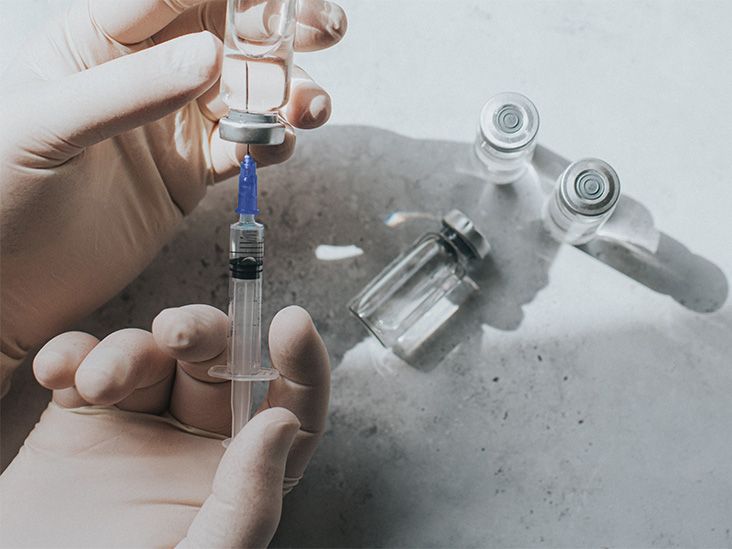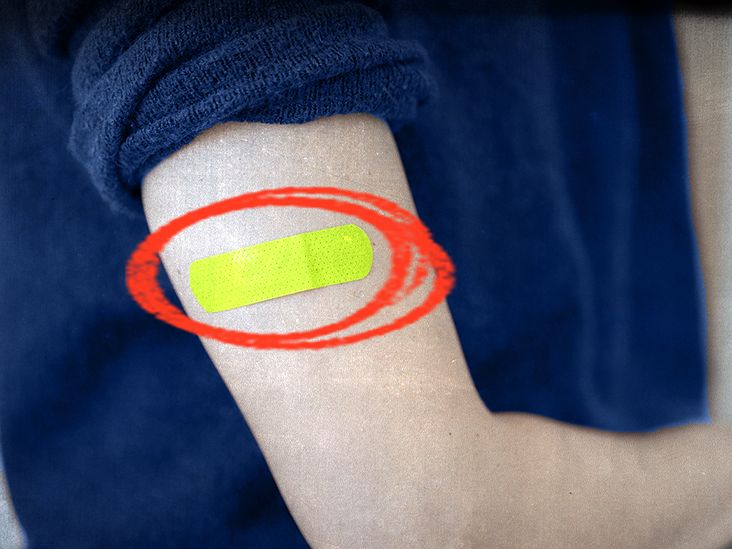Subcutaneous immunotherapy injections for cancer, such as immune checkpoint inhibitors, are an emerging therapy that may replace some traditional intravenous infusions. Common side effects include fatigue, rash, and diarrhea.
In cancer treatment, “immunotherapy” is an umbrella term for therapies that change or boost the immune system to help it fight cancer cells. Several types of immunotherapies exist, including:
- monoclonal antibodies
- cytokines
- cancer vaccines
- chimeric antigen receptor (CAR) T-cell therapy
- immune modulators
- immune checkpoint inhibitors
Each of these treatments is
In recent years, researchers have focused on developing subcutaneous immunotherapy injections to help improve the accessibility of immunotherapy in cancer.
This article looks at immune checkpoint inhibitors (one of the latest types of subcutaneous immunotherapy available) and their potential side effects.
Immune checkpoint inhibitors
They do this by binding to and blocking specific proteins on the surface of cancer cells that would otherwise dampen the immune response. This keeps immune cells called killer T cells active to attack cancer cells.
There is no difference in the mode of action between immune checkpoint inhibitors given as infusions and those given subcutaneously, and the two forms appear to be similarly effective.
For example, in a 2024 clinical trial of the subcutaneous immune checkpoint inhibitor Opdivo (nivolumab), researchers found that the subcutaneous form was as effective for treating metastatic kidney cancer as the infusion form.
Because immune checkpoint inhibitors override natural regulatory responses and keep the immune system active, healthy organs and tissues can also feel the effects of excessive inflammation and autoimmune-like reactions.
Side effects from immune checkpoint inhibitors are known as immune-related adverse events (irAEs), and they
IrAEs can range in severity and vary from person to person, and different immune checkpoint inhibitors may be more likely than others to cause specific side effects.
The possible short-term side effects of immune checkpoint inhibitors include:
- Fatigue: Exhaustion and chronic tiredness can come from inflammation and immune activity in
hormone-producing organsTrusted Source such as the pituitary, adrenal, and thyroid glands. These effects can also result from inflammation in other organs, like the liver, or be a cumulative effect of systemic inflammation. - Rash: Inflammation in the skin can lead to side effects such as itching, rashes, changes in skin color, blisters, or sores. Skin reactions are the most common side effects of checkpoint inhibitor therapy.
- Diarrhea: The gastrointestinal system contains 70% to 80% of the body’s immune cells. Excessive immune activity in this system due to immune checkpoint inhibitors can cause colitis, abdominal pain, diarrhea, and black or bloody stools.
Immune checkpoint inhibitors can cause the following long-term side effects:
- Arthritis and joint pain: Over time, chronic inflammation can contribute to muscle and joint aches and pains such as arthritis and
myositis (muscle inflammation)Trusted Source . - Eye issues: Inflammation may affect the eyes, causing side effects such as uveitis,
conjunctivitisTrusted Source , blurred vision, or episcleritis. - Pituitary gland inflammation: This is
one of the most commonTrusted Source side effects of immunotherapy in the endocrine system. It can contribute to headaches, fatigue, low cortisol levels, and decreased thyroid function. - Thyroiditis or hypothyroidism: Persistent inflammation and immune activity in the thyroid gland can lead to hypothyroidism or hyperthyroidism, which
can contribute toTrusted Source symptoms such as weakness, bowel changes, dry skin, weight changes, and temperature sensitivity. - Pneumonitis: Shortness of breath and severe coughing can occur as a result of pneumonitis (lung inflammation).
- Hepatitis:
HepatitisTrusted Source (liver inflammation) can lead to jaundice, nausea, vomiting, fatigue, darker urine, easy bleeding and bruising, and stomach pain.
Many irAEs from immune checkpoint inhibitors are directly related to the overactivation of immune and inflammatory pathways. Treating irAEs requires finding a balance of keeping the immune system active enough to attack cancer cells without causing excessive damage to healthy tissues.
A treatment team will create a plan to manage side effects based on the severity of symptoms. Mild symptoms might not need treatment or might be treatable with supportive care, such as topical products, antihistamines, or nonsteroidal anti-inflammatory drugs.
Moderate to severe symptoms are often managed with immunosuppressive medications such as systemic corticosteroids. In some cases, a person might need to temporarily or completely stop immune checkpoint inhibitor treatment.
Side effects from immune checkpoint inhibitors can range in severity. Mild side effects can often be managed without interrupting immune checkpoint inhibitor treatment and may resolve once treatment is complete.
However, some severe side effects can cause irreversible organ damage and may be life threatening.
Subcutaneous immunotherapy injections for cancer offer a way to receive the benefits of therapies such as immune checkpoint inhibitors without maintaining a
Like their infusion forms, subcutaneous immune checkpoint inhibitors can cause inflammation- and immune-related side effects, known as irAEs, in any system of the body.
Mild irAEs can be managed with supportive care. However, more severe reactions may require stopping treatment, may cause permanent organ damage, or could be life threatening in rare cases.




